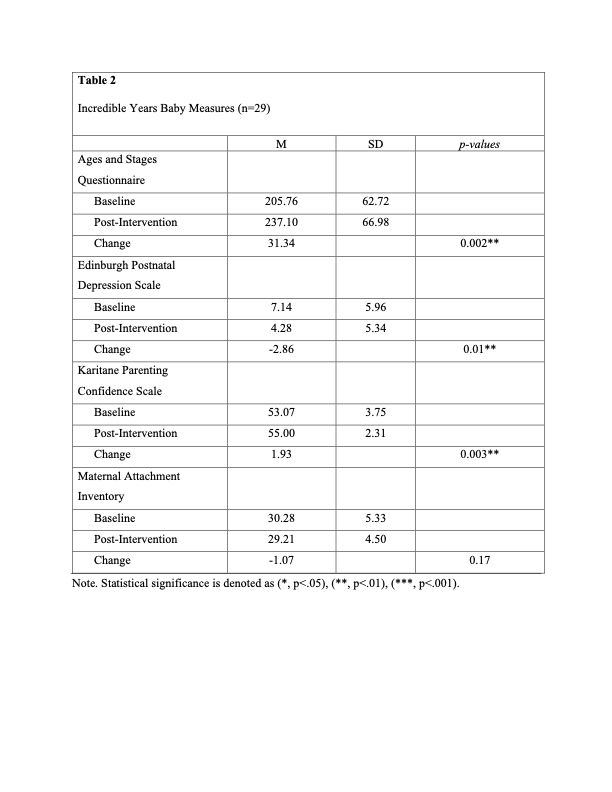Developmental and Behavioral Pediatrics: Parenting
Developmental and Behavioral Pediatrics 5
682 - Improving Maternal Mental Health and Infant Development In a Racially Diverse Population During the COVID-19 Pandemic, Through Virtual Positive Parenting Workshops
Publication Number: 682.307

Karen A. Camero, MD (she/her/hers)
Assistant Professor of Clinical Pediatrics
Children's Hospital Los Angeles/University of Souther California
Pasadena, California, United States
Presenting Author(s)
Background:
1 in 8 women in the United States report symptoms of postpartum depression. Minority and immigrant mothers are at greater risk, as they are adjusting to new environments, may lack family support, and face financial or cultural barriers; factors which were aggravated by the COVID-19 pandemic. Untreated maternal mental health disorders can lead to impaired maternal-infant bonding and childhood emotional and behavioral problems. In contrast, effective parenting behaviors have positive influences on child development. The Incredible Years Parents and Babies™ (IYPB) program promotes positive attachments between parents and infants, with studies reporting significant improvement in mental health for those who participated in the program.
Objective:
To evaluate the impact of IYPB on postnatal depression, maternal attachment, parenting confidence and infant development.
Design/Methods:
IYPB is a parent-baby group led by two trained professionals. Recruitment targeted English and Spanish speaking mothers and their infants ages 0-12 months. Classes were conducted weekly for 8 weeks, through Zoom. Pre- and post-intervention surveys were obtained using the Edinburgh Postnatal Depression Scale (EPDS), Karitane Parenting Confidence Scale and the Ages and Stages Questionnaire (ASQ). Parents completed weekly evaluations, a final satisfaction survey, and attended a focus group.
Results:
Four groups were completed in English and two in Spanish, with a total of 37 mother/baby dyads. Mean attendance was 6 sessions. Five focus groups and two individual interviews were conducted (N=19). Average age of mothers was 31.8 years and mean age of infants 5.5 months. Demographics revealed that 37.84% of women identified as Hispanic, 29.72% as African American, and 21.62% as Filipino. Pre and post data using paired t-test (N=29) showed a statistically significant decrease in total EPDS scores after intervention, from 7.14 to 4.28 (p = 0.01). There were also statistically significant increases in mean parenting confidence scores from 53.07 to 55 (p = 0.003), and in ASQ scores, from 205.76 to 237.10 (p = 0.002). Focus group transcripts highlighted the benefits of networking and learning from other parents and professionals. Barriers to participation included time constraints and occupation with childcare.
Conclusion(s):
Virtual parenting groups during the pandemic allowed racially diverse mothers to connect and build support networks. Participation in the IYPB program was associated with a statistically significant decrease in post-natal depression scores and significant increases in parenting confidence and infant development.
.png)
